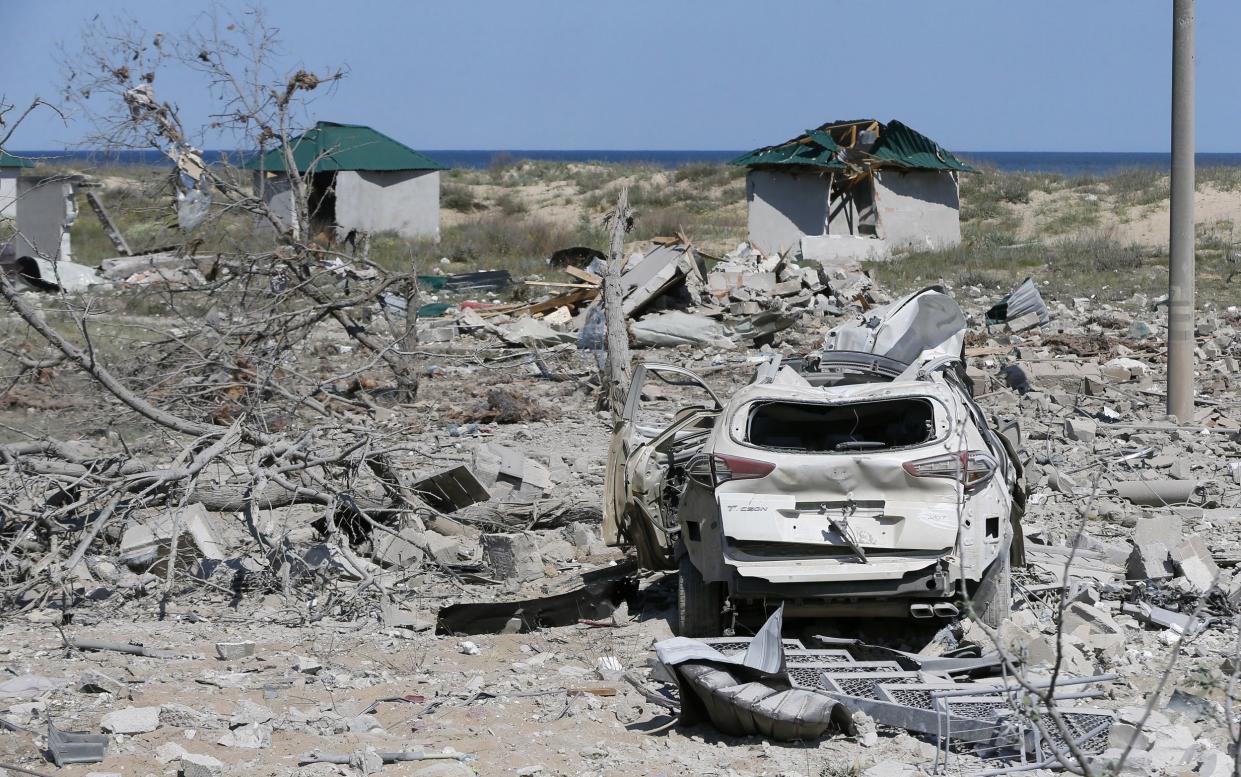Russia bombs strategic Ukrainian bridge to tighten stranglehold on food supplies

A strategic Ukrainian bridge has been targeted by Russian long-range missile attacks, according to British intelligence, in a move by the Kremlin to further exacerbate a looming global food crisis.
The strategically important Pidyomnyy Mist bridge, which provides a railway and road link between the port of Odesa and the border to Romania and Moldova, had been subjected to continuous bombardment, the Ministry of Defence said on Wednesday.
The crossing - also known as Zatoka bridge - is a vital route for Ukraine to export millions of tons of grains via land while its seaports are blockaded by the Russian navy.
Vladimir Putin has been repeatedly accused of weaponising food supplies in order to squeeze Ukraine and the West.
"Beyond the Donbas, Russia continues to conduct long-range missile strikes against infrastructure across Ukraine," the MoD said.
"The strategically important bridge links Ukraine with Romania and with Ukraine’s ports on the Danube, which have become critical to Ukrainian exports after the blockade of Ukrainian Black Sea ports by Russia."
By blockading Ukraine's Black Sea coast, Moscow has placed a stranglehold on the war-torn country's economy by preventing shipments of grains.
About 22 million tons of grain are currently stuck in Ukraine, one of the world's biggest wheat producers, which has sparked fears of a global food crisis.
Ukraine has around a month to get the supplies out of the country before the start of the next harvest.
Macky Sall, the president of Senegal who chairs the African Union, has warned the blockade risks a "catastrophic scenario" of food shortages and price hikes.
Before the war, African countries imported some 44 per cent of their wheat from Ukraine and Russia.
Russian advances in Luhansk
The European Union has tried to launch a rescue mission to help Ukraine shift 20 million tonnes of wheat by road and rail.
Brussels is set to invest in extra grain storage and will relax border controls with Poland and Romania to get the foodstuffs out of Ukraine.
At a summit of EU leaders earlier this week, they said the bloc's ports could be used to ship Ukrainian grains arriving by road and rail.
A number of member states, led by the Baltics and Poland, are sceptical over potential deals with Mr Putin to unlock the ports.
The Kremlin has suggested it would end its blockade if the West helps de-mine Odesa and lifts sanctions on Moscow.
Lithuania has proposed naval convoys to escort Ukrainian ships out of its Black Sea ports, but Nato allies have warned they are not willing to send vessels into the conflict zone.

 Yahoo News
Yahoo News 
